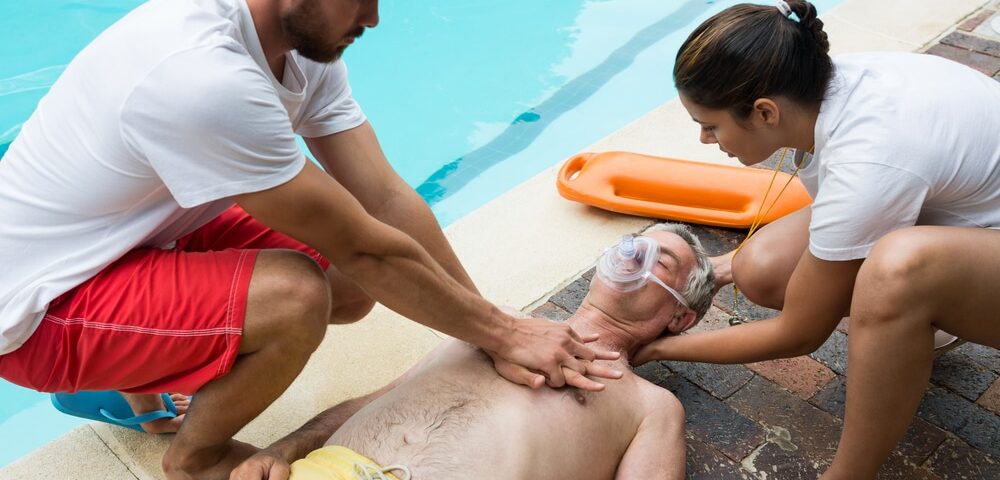
Five Pointers for Novice Home Buyers
April 19, 2024
Stay Out of Trouble: Benefits of Hiring a Car Accident Lawyer
April 19, 2024How to File a Lawsuit for Injury from a Swimming Pool

A personal injury claim against the owner or manager of a swimming pool for an incident that occurred there is known as a swimming pool injury lawsuit. These lawsuits are frequently filed on behalf of those who drowned in the pool, alleging wrongful death.
Numerous cases alleging injuries from swimming pools assert that the owner of the pool should be held liable for the injuries according to premises liability legislation or that the injuries were the result of someone’s negligence. These legal actions aim to get payment for your:
- sorrow and agony,
- medical costs, as well as
- decreased ability to earn money or lost pay.
1. What kinds of swimming pool injuries are most common?
Injuries can occur in a swimming pool in many different ways. A portion of these wounds are minor:
- cuts and scratches from falling and slipping outside the swimming pool,
- shattered bones from a fall, or
- taking a tumble on the diving board.
Nevertheless, a swimming pool can also result in a number of serious or even deadly injuries:
- drownings
- incidents involving near-drownings that result in lifelong harm, such as brain injury, or
- fractured neck or spine as a result of diving into the shallow end of the pool.
Collectively, these wounds are by no means unusual. Based on data from the Centers for Disease Control (CDC), there were 3,536 fatal drownings in the United States year on average between 2005 and 2014.As a result, accidental drowning ranks as the sixth most common cau3.e of death in the US.
Children under the age of fourteen make up one in five unintentional drowning victims.2
Countless more suffer life-altering injuries from near-drownings4or non-fatal incidents.
2. In what ways do private and public swimming pools differ in terms of liability?
The kind of swimming pool is Swimming pools accessible to the publiclving injuries sustained in swimming pools. Two categories exist:
- Private spersonal poolsre kept up and owned by the building’s owner, are situated on private property.
- Public swimming pools are those that are owned and maintained by the local government or one of its departments—typically the parks and recreation department—and are situated on public land.
The style of swimming pool will have a significant impact on how the next litigation is handled, even if it probably won’t change the kind or severity of the injuries.
Private swimming pools
When an accident results in physical injury at a private pool, the pool owner may be held legally liable.
The insurance company would also be sued if the pool owner had homeowner’s insurance that covered accidents involving swimming pools. Injuries that happen in rental homes and swimming areas in apartment buildings may also subject landlords to liability.
Premises liability is frequently the basis for lawsuits filed against owners of private swimming pools. They contend that the owner of the pool was obligated to keep you safe while on their property, but they did not fulfill this duty.
These cases include ones brought against private businesses or hotels for accidents that happened in their swimming areas.
Public swimming pools
Lawsuits for personal injuries resulting from mishaps at public swimming pools are far more intricate since they are brought against a government agency. The action is complicated by various procedural obstacles since it seeks reimbursement from the local government, which is supported by taxpayer money.
Furthermore, the maximum amount of compensation that can be awarded in a lawsuit is frequently capped.
Numerous cases alleging injuries sustained in public swimming pools attribute their origin to careless supervision. They usually claim that the injury occurred because the lifeguards did not keep people safe.
3. Who is accountable?
Many lawsuits involving injuries from swimming pools assert that the pool owner should be held liable for premises liability since they failed to maintain your safety.
Property owners are obligated to maintain their assets, including their swimming pools, in a fairly safe state in the majority of states, including California. If you do not do this, you may hold those property owners liable for any injuries you suffer in or around the swimming pool, as well as for neglecting to alert others to potential hazards.
How predictable it was for you to be there is, in many states, a key consideration in establishing whether the pool and premises were kept in a sufficiently safe condition. Three categories of visitors are recognized by these states’ laws, and each has a right to a safer space:
- Those who enter a property without the owner’s consent or request are considered trespassers. Owners of property are simply obligated to refrain from intentionally harming trespassers.
- Those who are on the land for personal reasons and with the owner’s stated or tacit approval are known as licensees. Property owners are required to alert licensees of hidden hazards and cannot intentionally cause harm to them.
- Those who are on the property at the owner’s invitation and for the owner’s financial gain are known as invitees. It is the responsibility of property owners to search for hazardous situations and either remedy them or alert guests to them.
For instance, on a hot day, Paul, 21, leaps over his neighbor’s fence and into their pool to cool down. Since he would be considered a trespasser, the owner would not be responsible if he had a cramp and almost drowned in the pool.
For instance, five-year-old Evie is frolicking in the water. The deck is composed of wood, which obviously takes on a dark hue and becomes slick when it gets wet. But there aren’t any cautionary indications. When Evie turns at the pool’s corner and strikes a wet area, she loses her footing and falls because she is unaware of the danger. She required stitches for a huge cut on her knee after falling and breaking her arm on the pool’s edge.
Evie would be a licensee and the owner might not be held accountable if she attended a neighbor’s pool for their Fourth of July celebration.
Evie would be considered an invitee if she had been staying at a hotel with her family while on vacation, and the hotel might be held accountable for failing to notify or rectify the danger.
However, Californian premises liability law does not adhere to these precise classifications. Rather than focusing just on your intentions, premises liability in California considers all the facts to evaluate whether the property owner took reasonable precautions to ensure your safety.3 Among these situations are the following:
- Whether the pool was fenced in or not,
- Regardless of whether the pool was subterranean or above ground,
- Any gates that provide access to the pool must be locked, and
- a record of who has previously been able to access the pool.
Particular guidelines for kids who trespass
Under the premises liability laws of several states, minors who would be deemed trespassers are subject to particular regulations. Certain other states, like California, only consider a child victim’s age and maturity when determining whether the owner of the property may be held accountable for their injuries sustained in a swimming pool.
The attractive nuisance doctrine refers to the unique premises liability rule that applies to children who trespass. According to this law, property owners are responsible for any harm caused to kids who trespass into their land in order to investigate anything that may reasonably lead a kid to do so.
Because swimming pools are among the attractive nuisances that may subject their owners to responsibility, the attractive nuisance doctrine is particularly significant when it comes to cases involving injuries sustained in swimming pools.4
4. May I file a claim for careless supervision?
Certain lawsuits pertaining to swimming pool injuries assert that the injuries occurred as a result of careless supervision of the pool.
The majority of claims involving negligent supervision happen in situations where there are lifeguards on duty or when the injuries happened in a public park or pool. Lawsuits for swimming pool injuries based on careless supervision contend that the lifeguards were either incompetent or failed to indicate when they were off duty.
Example: At a nearby amusement park, Carl is having fun in the water area with his kids. He trips and falls, hitting his head. His lips and nose are underwater, causing him to start drowning even though the water is just ankle deep. It takes the amusement park employees about three minutes to realize that Carl is drowning. Carl’s extended lack of oxygen causes serious brain damage, even though they are able to save his life. Carl’s injuries might make the amusement park accountable for its reckless oversight.
5. How much money may a victim get back?
You may be eligible to compensation against the individual or persons who caused your injuries if you were hurt in a swimming pool.
This payment may be used to pay for:
- previous medical costs you have previously paid,
- The expense of long-term in-home care, which is frequently necessary in situations of severe brain damage, as well as future care
- Wages and additional revenue that was forfeited throughout the rehabilitation procedure,
- unable to support oneself in the future,
- Anguish and distress, as well as
- absence of company for your household.
6. When is it possible to file a wrongful death lawsuit?
If someone in your family passed away in a swimming pool accident, you may be able to sue for wrongful death on the victim’s behalf.
Every state has a statute that specifies the procedures for filing wrongful death claims. Many wrongful death statutes offer various forms of compensation for successful claims because the intention is to pay you rather than the victim directly. The following are some of the most typical forms of damages that can be obtained in a wrongful death lawsuit:
- burial costs,
- Loss of friendship and group support, as well as
- loss of financial stability and income missed by the victim.


